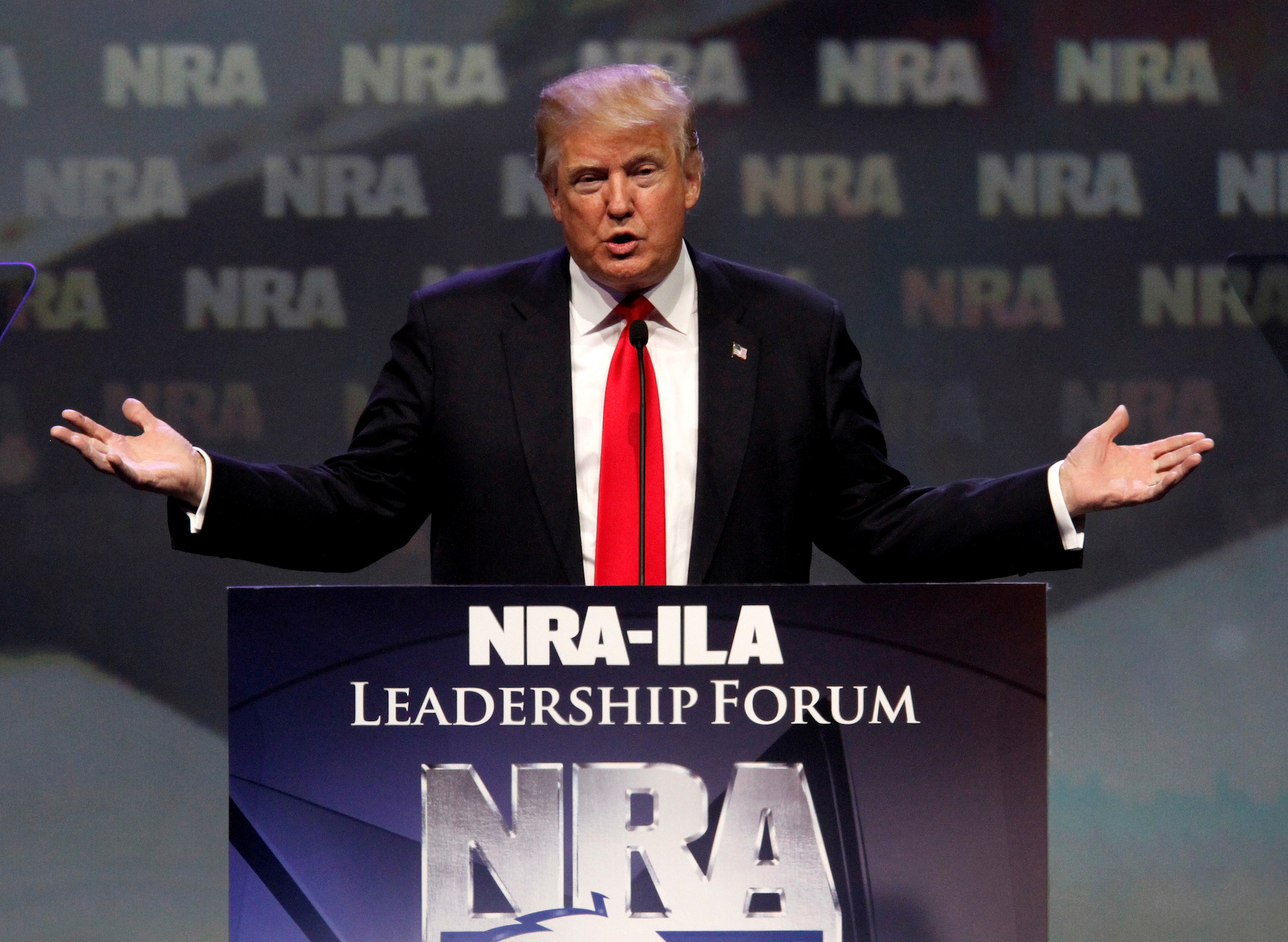The National Rifle Association represents less than a fifth of all American gun owners, yet it remains one of the most powerful gun rights lobbies in the United States.
For decades, the NRA has successfully blocked federal action – including government-funded gun violence research and a proposed assault weapons ban – that it believes threatens gun owners’ second amendment rights.
The NRA spends millions influencing Congress and the White House to advance its agenda. And its monetary prowess is still growing.
The group has already spent more money lobbying for expanded gun rights through the first two quarters of this year as it did in all of 2016.
The NRA was founded in 1871, but didn't begin to seriously influence policy until about a century later. Following the passage of the Gun Control Act of 1968, the NRA became much more politically active, establishing a Political Action Committee aimed at supporting gun-rights politicians over those advocating for gun control.
In 1977, it significantly grew and began to align with conservative members of Congress to push for more relaxed gun regulations, harnessing the grassroots power of its members across the country.
Today, the gun control debate is fraught with divisiveness and partisanship, especially after mass shootings like the one in Las Vegas that left 58 people dead. Many gun control advocates blame the NRA's aggressive lobbying tactics and dramatic rhetoric for driving Americans' opinions on the issue apart, but the group says its mission is to "protect and defend the Constitution of the United States."
While there are some gun-related issues on which a majority of Americans agree, the NRA's influence remains a contentious and dominant aspect of the ongoing gun debate. Here's how powerful the group really is:
While the cigarette, pharmaceutical, and insurance industries spend far more, the NRA spends nearly 10 times as much as the biggest gun control lobbying group in the country.
The NRA is especially active during presidential campaigns, contributing millions to candidates that support expanded gun rights and targeting those who threaten to control or regulate guns. In the 2016 election, the group threw its support behind President Donald Trump, and against Democratic opponent Hillary Clinton.
The NRA also contributes tens of thousands of dollars to Congressional candidates and members of both parties, though the lion's share goes to the GOP. The top 81 members of Congress with the most career NRA contributions are all Republicans.
And that has had a profound effect on how Americans view the NRA. Its influence has divided gun owners and non-gun owners.
There are also significant differences in how NRA members and non-NRA members view the same gun control policy proposals — even among Republican gun owners.
